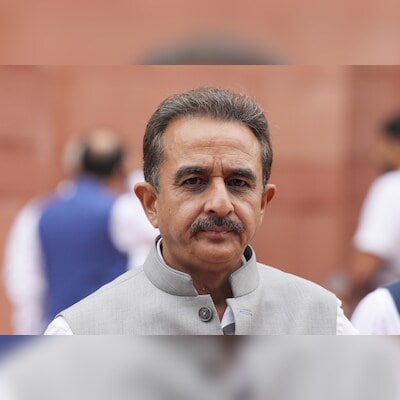)
“No funds have been released in the last five years out of ERF,” Singh said. As of March 31, 2023, the fund has accumulated Rs 1,062 crore. (Photo: PTI)
No compensation has been paid from the Environment Relief Fund (ERF) since 2019, Union Minister of State for Environment, Forest and Climate Change Kirti Vardhan Singh informed the Rajya Sabha on Thursday.
Established in 2008 to assist individuals affected by hazardous substances, the ERF has remained inactive in recent years. “No funds have been released from the ERF in the past five years,” Singh stated.
As of March 31, 2023, the fund had accumulated Rs 1,062 crore. Instituted under the Public Liability Insurance Act (PLIA), 1991, following the Bhopal gas tragedy, the ERF’s primary purpose is to offer immediate relief to victims of accidents involving hazardous substances.
Despite its critical role, the fund has been left untapped, raising concerns about its effectiveness in aiding disaster victims.
The revelation coincided with the government’s publication of draft guidelines aimed at enhancing transparency in the disbursement of the fund. Dated July 25, these draft regulations call for increased accountability and clarity in how the ERF is allocated to victims of major environmental disasters.
Singh explained that applications for claims are submitted to the respective Collector, who then instructs the fund manager to deposit the required amount into the Collector’s account. The collector subsequently disburses the funds to the claimant.
“Since no claims have been made under these provisions, no funds have been released from the ERF in the past five years,” Singh clarified.
Moreover, the National Green Tribunal (NGT) has not issued specific directions for awarding compensation from the ERF.
Under PLIA, two types of compensation are expected to be disbursed from the ERF: relief awarded by NGT in environmental disputes and immediate relief to victims of accidents involving hazardous activities, as determined by the District Collector. This relief is only provided when the amount awarded by the Collector exceeds the coverage of the insurance policy under PLIA, explains Debadityo Sinha, lead for climate and ecosystems at Vidhi Centre for Legal Policy.
Reforms
The new draft guidelines direct fund managers to disburse all pay-ins to the Central and State Pollution Control Boards (PCBs).
According to the draft regulations, the fund will also collect penalties under PLIA, along with the interest or returns earned on the investments of the ERF. These funds will be monitored separately by the fund manager, the proposal observed.
This move is expected to streamline the process and ensure that the funds reach those in need more efficiently. However, experts caution that the effectiveness of these measures will depend on their implementation.
“The Jan Vishwas Bill revised the PLIA, giving the CPCB the power to demand compensation for restoring environmental damage from accidents involving hazardous substances from the ERF. This might lead to better utilisation of the fund,” Sinha said.
Experts in the environmental sector emphasise that the primary goal of providing immediate compensation to victims of industrial disasters requires greater public awareness and further reforms to simplify the claims process.
The ministry is inviting comments from stakeholders for 60 days, starting July 25.
First Published: Jul 30 2024 | 8:12 PM IS

